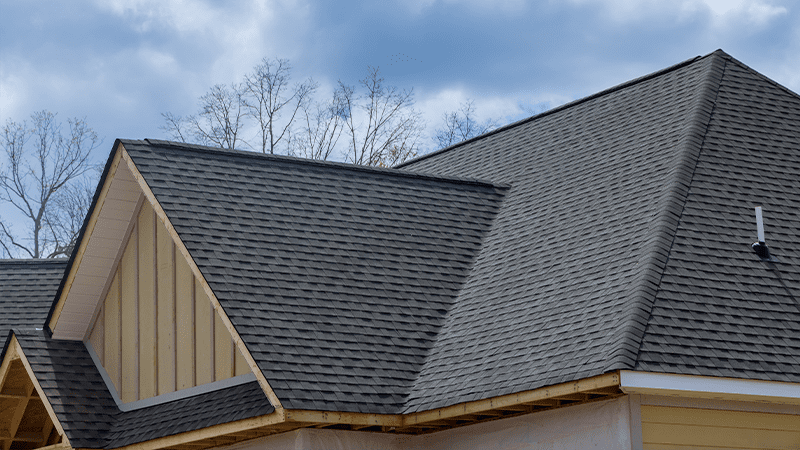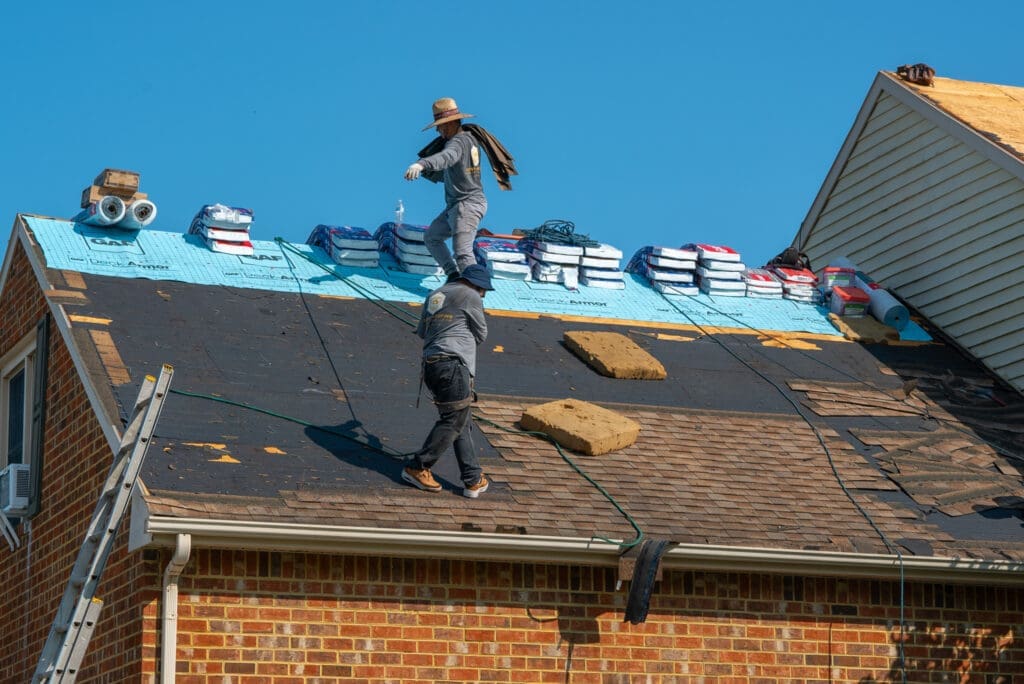They say you should always read the warranty and that warranties protect your investment. But how? Sure, they might provide assurance on paper, but what do they do for us living here in the real world? How do roofing warranties actually help you as a Virginia Beach homeowner? Are roofing warranties worth it?
What are the basics of roofing warranties?
There are two types of roofing warranties: Manufacturer warranties and Contractor/workmanship warranties.
Manufacturer warranties protect you from defects in the roofing materials.
They protect you against faulty shingles or defective underlayment. It’s essentially a guarantee that your roofing materials will work as advertised. And if they don’t, the manufacturer will pay for the replacement. (The vast majority of manufacturer warranties only cover the material costs and not the labor costs.)
You might be thinking, “How common are manufacturing defects? I mean, how do you mess up making shingles? Especially if you are a large corporation that makes millions of shingles every year?”
Well, you’re right in the sense that manufacturers have an incentive for quality control. They don’t want to pay claims, so they employ consistent quality in their manufacturing process. But slip-ups can happen when you are making millions upon millions of products. Maybe the raw materials were defective, or an error in the manufacturing equipment created a flawed product. And by the power of probability and sheer bad luck, that flawed material ends up on your roof.
Timewise, warranties vary, but most warranties range from 20 to 50 years.
Contractor/workmanship warranties protect you from improper installations.
As a roofing company in Virginia Beach, we carefully train our contractors to protect our communities. That’s how we earned our certification. Beyond that, we, as craftsmen, take pride in our workmanship.
But we can’t speak for all roofers. Sometimes, mistakes happen while working on your roof. The contractor warranty holds them accountable. If your contractor caused a problem because of poor installation practices, they’ll have to fix it. These warranties hold our industry to certain standards.
Again, the length may vary, but most are around 1 to 10 years.

Additionally, either warranty can also be:
Extended or upgraded warranties are just that. Manufacturers and contractors may offer you longer coverage periods, enhanced protection, or additional benefits.
Prorated warranties decrease in coverage value over time. So you’ll get less compensation as your roof (and warranty) ages. Non-prorated warranties maintain their full coverage throughout the warranty period.
What does our GAF Certified Lifetime Limited Warranty mean?
On our homepage, under Industry Partners, you’ll notice that we are GAF Certified Roofers with a Lifetime Limited Warranty. GAF-certified just means GAF, the largest manufacturer of roofing materials, trusts us to install their products. Well, it actually means more than that. GAF certification involves rigorous training, ongoing education, and meeting strict quality standards
Lifetime Limited means that coverage lasts for as long as the original roofing customer stays within the single-family home they serviced. So basically, for as long as you stay in that house.
That is, of course, an oversimplification of the warranty. A detailed explanation is well beyond the scope of this blog. So, ask your roofing contractor in Virginia Beach about their warranty. Or check out GAF’s Residential roof warranty comparison guide for more information.
What isn’t covered under roofing warranties?
Warranties promise that you get what you paid for: materials that work and quality workmanship. However, roofing warranties do not cover:
- Normal wear and tear: The roofing industry would go under if we promised to cover the results of normal aging. Deterioration is natural and expected. Try our blog: 10 Things You Should Look for When Deciding Whether or Not to Get a New Roof!
- Acts of nature: extreme weather events like hurricanes, tornadoes, earthquakes, or other natural disasters are normally not covered. Check out our blog: Has Your Roof Been Hit by Hail? Learn What to Do Next! Or try this article on maintenance from Professional Roofing Magazine.
- Improper maintenance: Roof maintenance is on you, so neglecting your roof may void the warranty. Read our blog, Coastal Roofing Tips to Help Protect Your Virginia Beach Home, to learn more about maintenance.
- Damage from pests: Pests, rodents, birds, and the damage from other animals are not covered. (We don’t have a blog for that. Yet.)
- Additional installations: Things get a little more nuanced with additional installations. For example, adding a skylight may or may not void the warranty, depending on the contractor. Installing solar panels on your roof requires drilling into your roof. However, residential solar installers offer their own contractor warranty.
- Hiring unlicensed contractors: There’s a reason roofing contractors like us say: “We’re licensed and insured.” Because if we weren’t, any work we do on your roof would void the warranty.

How do I file a roof warranty claim?
- Contact your roofing contractor or roofing material manufacturer
- Gather the necessary paperwork. Have your warranty paperwork handy. Secure details about the roofing project, such as the installation date and materials used.
- Document the issue by taking pictures of the damage.
- Typically, an inspector from the contractor or manufacturer will come out to evaluate your claim.
- Once the inspector verifies the problem, the company should follow through with a repair or replacement.
- If you suspect an issue, file a claim quickly!
No matter what’s on your warranty, you should have your roof inspected annually.
You might think we’re biased, but annual roof inspections save you on roof repairs in Virginia Beach. Annual inspections catch minor problems before they snowball into expensive challenges.
